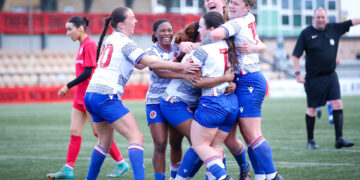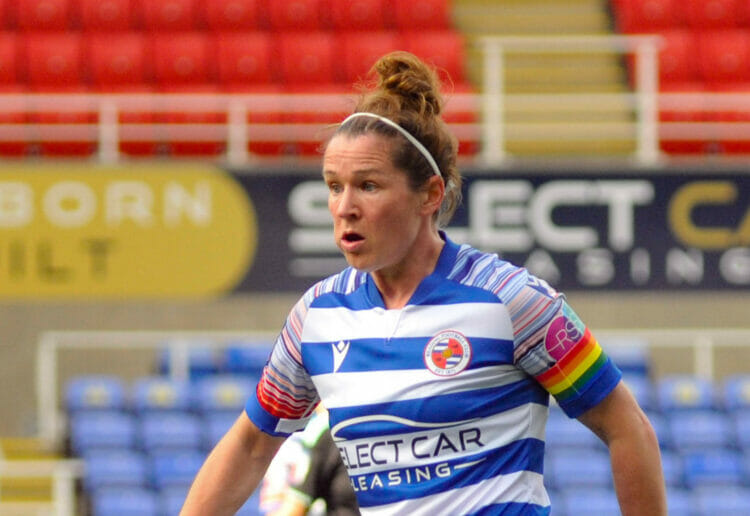READING FC WOMEN’s manager Kelly Chambers has responded after club captain Emma Mukandi criticised the Football Association’s maternity policy.
Speaking on the COYGIG Pod, Mukandi criticised the club for how they dealt with her maternity leave.
Mukandi said: “The policy is you only get 14 weeks full pay and you’ve got to go back to work.
“Bear in mind our body is our job, who even came up with that? Surely not someone who’s played football and had a baby. Is that a man? It had to be a man. A man was definitely involved in that.
“They put this policy out and I feel like there’s such a grey area. It comes down to whatever club you’re at.”
Despite the policy only being 14 weeks, Mukandi was given eight months full pay by Reading.
Royals boss Kelly Chambers said: “I don’t think Emma said anything against the club. She wants to fight for footballers to be mums.
“Now it’s how clubs can think about the women’s game in that light. It’s new for clubs based at men’s training grounds.
“It’s hard, you can go to most workplaces and it would be statutory pay.
“14 weeks doesn’t mean you have to return to playing after 14 weeks, that needs to be clear to players.
“Emma wasn’t ready to step on the pitch, we accepted that. There has to be more guidance for players. It’s a step in the right direction. When Emma gave birth there was nothing.”
Mukandi also gave her thoughts on the first half of Reading’s Women’s Super League campaign.
She said: “It’s been pretty difficult. We’re sitting second bottom in the league with seven points. That will probably be enough for us to stay up.
“It’s quite hard some weeks knowing you’re going to get beat at the weekend.
“For us it was bad timing with the Christmas break. Although we were beat at Chelsea there were plenty of positives to take.
“The hardest thing is the players you’re with, you can’t say anything to them because they just cry.
“At a team like Arsenal you’re used to players shouting and demanding because that’s the level.
“It’s hard to go into training to keep your own standards really high and demand more from players without crossing a line because you’re not sure how certain players are going to react, they’re not used to it.
“It’s difficult to raise the standards because sometimes you don’t know if they are giving their best level or is this where they are at, or do you know what it takes. That’s been a difficult transition.
“To be honest I was really surprised that I got given that (the captaincy) because when it comes day to day, I don’t have much time to spend with the girls away from being on the pitch or in the gym.
“I think the reason I got it is because the way I train and carry myself rather than being on the pitch shouting at people because you don’t really get a reaction from them anyway.”
























